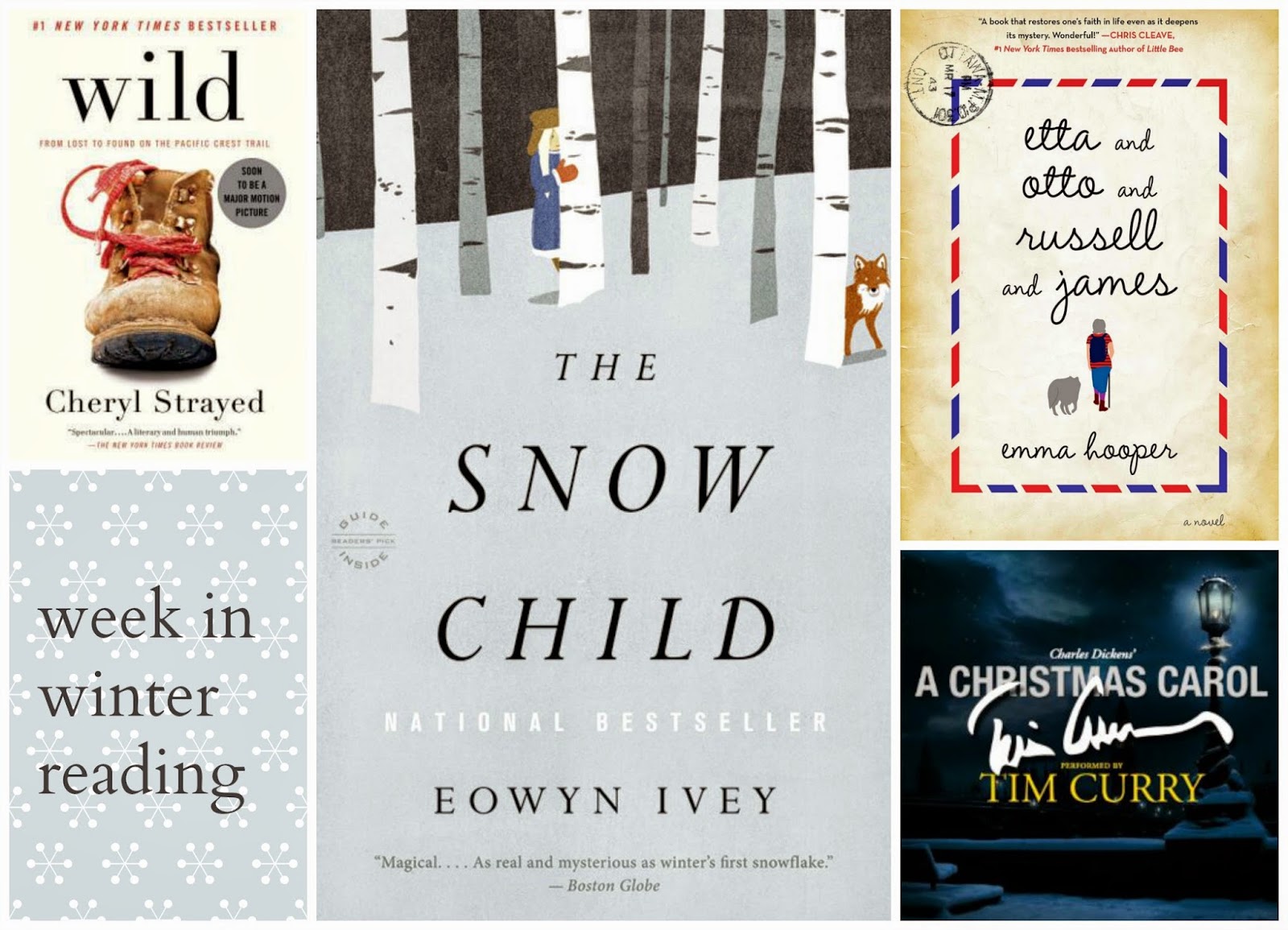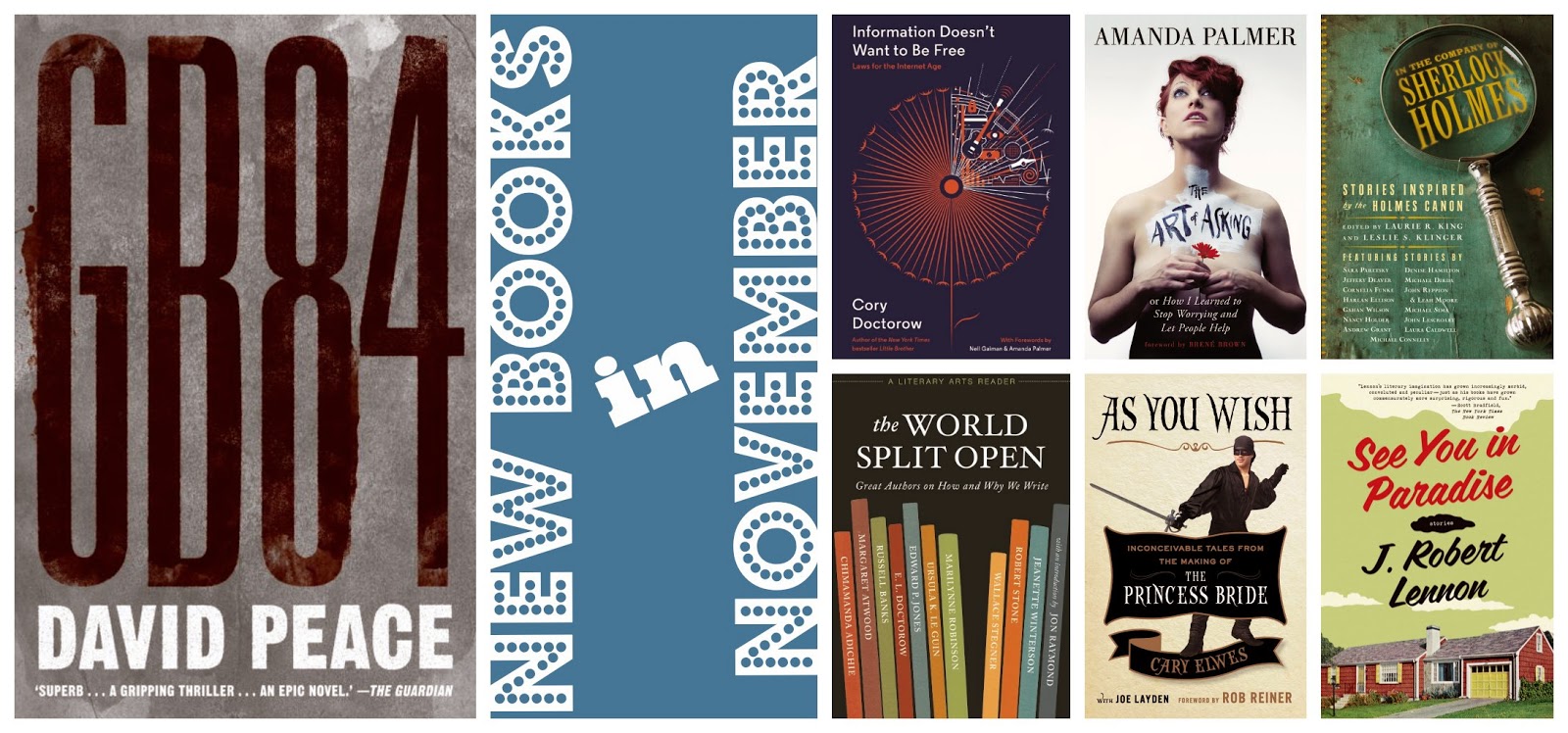October set the bar pretty damn high for November reads, but I have confidence that this list contains some (ok, I've read a lot of them already, so I can safely say many) gems. These books will make perfect companions for longer nights and the chillier weather that is settling in on the mid-Atlantic.*
As You Wish, by Cary Elwes: Ok, I cheated here, because this is an October book, but as I'm halfway through the audio version (read by Cary Elwes, with appearances from Robin Wright, Christopher Guest, and other cast members), I'm sneaking it in anyway. Because HOW COULD YOU NOT LOVE A BOOK ABOUT THE MAKING OF
THE PRINCESS BRIDE?
GB84, by David Peace (Melville House, November 4): I had never heard of Peace before BEA this year, when I heard him read from
Red or Dead. And though I still haven't started that (or
The Damned UTD, which I own), I'm already jonesing to dive into
GB84, historical fiction that the blurb promises "depicts a real-life 1984 more violently dystopian than even Orwell imagined." Um, yes.
In the Company of Sherlock Holmes, edited by Leslie Klinger and Laurie King (Pegasus, November 28): I read (and adored) Klinger and King's first Sherlock-inspired collection,
A Study in Sherlock, so you can bet I was jumping up and down all over the place when I saw there was a second volume in the works. I've already read it, and I can tell you it's just as delightful as the first collection, so gear up for some wildly inventive Holmes-inspired fiction, friends.
Information Doesn't Want to Be Free, by Cory Doctorow (McSweeney's, November 18): Who here thought it was impossible to make copyright interesting? Right. All of you raising your hands have just been proven wrong by the inimitable Cory Doctorow, whose exploration of copyright law and how it affects art and artists and the market and our everyday lives is just downright fascinating.
The Art of Asking, by Amanda Palmer (Grand Central, November 11): Palmer is a fascinating artist to watch, and actually appears on this list of books twice, in her way (she wrote one of two introductions to Doctorow's book, above). I don't know much about this book yet, but coming from her, I know it will be interesting.
See You In Paradise, by J. Robert Lennon (Graywolf, November 3): I nabbed a copy of
See You in Paradise, a collection of short stories by an author Ann Patchett calls "a writer with enough electricity to light up the country," the same way I found
The Wilds: at Book Expo, by asking the staff at the Graywolf booth what one book I should walk away with given my limited suitcase space. This was that book, and the stories are weird and strange and delicious and memorable, and, just as Patchett said they would be, electric. Read this if you love short stories, or if you think you'll never love short stories.
The World Split Open, an anthology (Tin House, November 11): I said in my wrap-up of October books that I would read anything with Margaret Atwood's name on it, even an IKEA catalog, and that's what brought me to this title. But Atwood's not alone in this collection, subtitled "Great Writers on How and Why We Write." Other authors include: E. L. Doctorow (author of
Ragtime, among others); Marilynne Robinson (
Gilead ranks among my favorite books of all times); Ursula K. Le Guin (a fantasy author I've always meant to read but never quite got around to); and many others.
---
What books are you most excited about this month?
---
*Though remember, nothing lasts forever in a cold November rain.














































